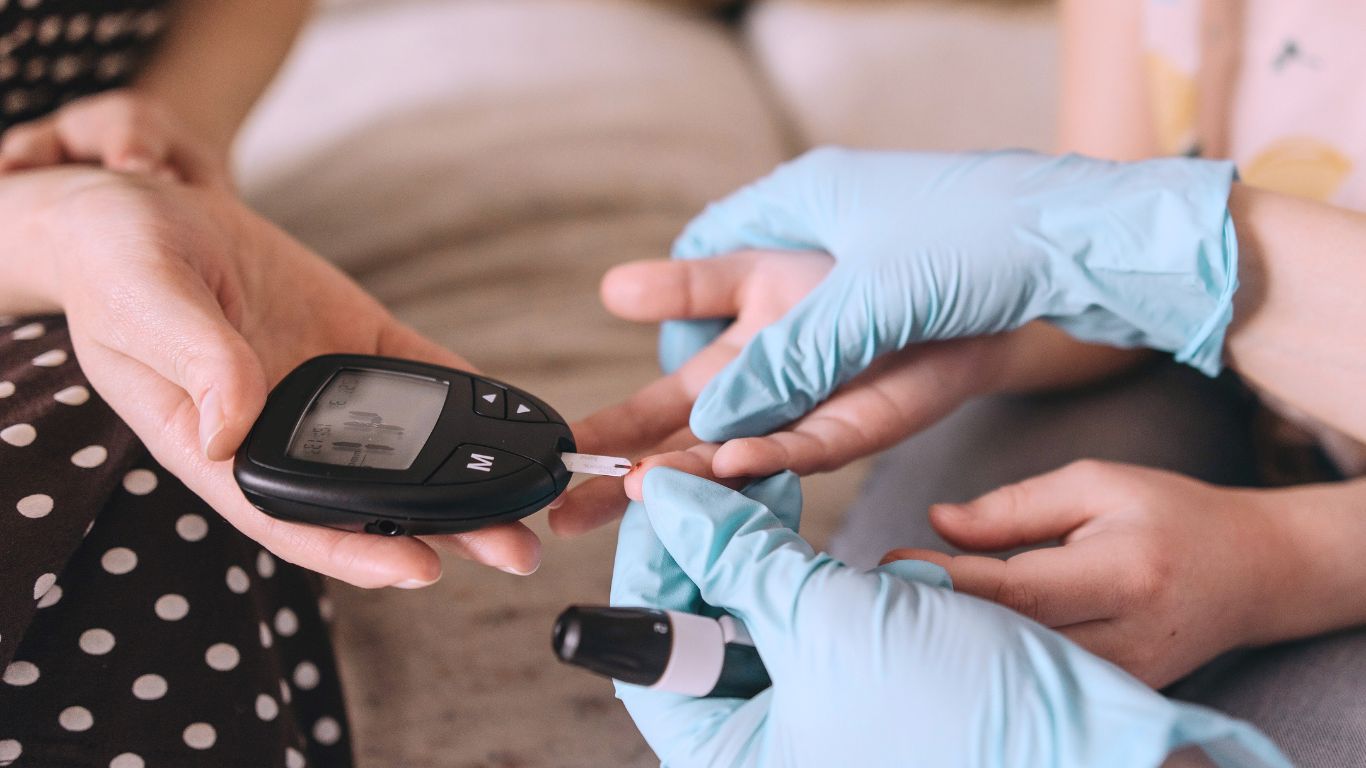Becoming a new parent is exciting and scary all at once and you need to adapt fast to all the changes that come with having a new baby. Prioritizing physical health during this postpartum period is key; consulting a postpartum nutritionist is gold during this journey.
A nutritionist who specializes in postpartum care can help with overall well being and meet the nutritional needs of new mums – we will get into that more in this blog post! Looking after yourself through proper nutrition post birth has long-term benefits for you and the baby – we will also talk about why prioritising physical health during this postpartum period is crucial before, during, and during postpartum!
40% of women don’t go to a postpartum check up after having a baby according to the American College of Obstetrics and Gynecology. The first postpartum visit is usually around 4-6 weeks after having a baby for women who want to go and are focused on the baby.
Postpartum women have to deal with major physical and hormonal changes and recover from the physical and emotional trauma of birth and possibly surgery. They also have to feed a new baby which requires multiple feeds.
If breastfeeding a postpartum nutritionist can give you the specific nutrition you need to support your baby’s development and growth help you and your body recover from birth and meet all your nutritional needs. A postpartum nutritionist can help you shift your focus from the baby’s nutritional and growth needs to your own health and well being.
See a postpartum dietician at Nourish today if you need more help.
See a postpartum dietician at Nourish immediately if you need more help during this time.
Nutritional Needs while Breastfeeding
Breastfeeding mums have specific nutritional needs to support milk production and overall health.
Nutrients for Milk: Protein, calcium, vitamin D, and iodine are key for breastfeeding. A diet rich in dairy, lean meats, fruits, and vegetables will give you these.
Maternal Health: When breastfeeding mum’s health must not be compromised – specifically bone health (through enough calcium) and energy levels (through balanced macronutrients).
Fixing Deficiencies: Breastfeeding mums often have iron and B vitamin deficiencies. Eat foods high in these or take supplements.
Maternal Health: When breastfeeding mum’s health must not be compromised – specifically bone health (through enough calcium) and energy levels (through balanced macronutrients).
Addressing Common Deficiencies: Breastfeeding mums often have iron and B vitamin deficiencies. Eat foods high in these or take supplements.
How a postpartum nutritionist helps after birth
Postpartum nutritionists work with you based on your individual needs, dietary preferences, lifestyle, and recovery.
Customized Meal Plans: Nutritionists can create meal plans for you by taking into account breastfeeding and recovery status when designing postpartum meal plans for mums.
Addressing Dietary Preferences: Nutritionists can accommodate any dietary preferences you may have – vegetarian, food allergies, don’t like certain foods, don’t like certain flavors of food, etc and provide alternatives that still give you the nutrients you need and good nutrition.
An expert can teach you how to make good food choices, so you and your baby can make healthier food choices.
Replenishing Nutrients: Pregnancy and breastfeeding can strip our bodies of essential vitamins and minerals so eating foods high in these will help top them up – and overall health and energy will follow.
Restore Hormonal Balance: Eating certain foods post-birth can help restore hormonal balance. Tryptophan-rich foods (like turkey and eggs) can increase serotonin levels make you feel good and relaxed and aid postpartum recovery.
Nutrients for Recovery: Protein, vitamins A & C, and zinc are key to healing and tissue repair. Whole grains, fruits & veggies, lean meats & dairy products have all these.
Foods to Boost Energy: With sleepless nights and crazy schedules as a new mum’s reality, fatigue can set in fast. Complex carbohydrates like whole grains and legumes give long-lasting energy without the crash of sugary snacks.
Mood Boost: Omega-3’s found in fish, walnuts, and chia seeds may help with mental well-being and reduce postpartum depression risk.
Nutrient Dense Foods to Add: Focus on foods like salmon, spinach, sweet potatoes, and eggs which pack a punch of vitamins and minerals into small packages. Hydration: Breastfeeding mums need to stay hydrated so aim to drink at least 8 glasses of water a day (more if breastfeeding).
Meal Prep: Plan your meals so you can eat balanced even on crazy days. Hormones can trigger cravings and emotional eating. Find healthier alternatives or do stress-reducing activities like yoga or meditation to reduce these tendencies.
Best Personal Stories and Testimonials
Jane, the new mom, shares her experience with a postpartum nutritionist: “Working with one was life-changing for me; she taught me about nutrition during my recovery and baby’s development. Plus my meal plans were delicious and easy to make – fit into my busy daily life!”
Sarah, another mom, says: “After having a baby I had low energy and mood swings. Working with my nutritionist found the nutritional gaps in my diet and it made a big difference in my energy and overall mood.
Where can I find a postpartum nutritionist?
Postpartum nutritionists can help you postpartum and get your baby on the right nutritional track.
With Eat Fit Plan you can choose a nutritionist who can see you online or find a postpartum nutritionist in your area.
Also your OB-GYN may recommend a dietitian for you to see as part of their prenatal and postpartum care. You can also ask other new moms you know.


